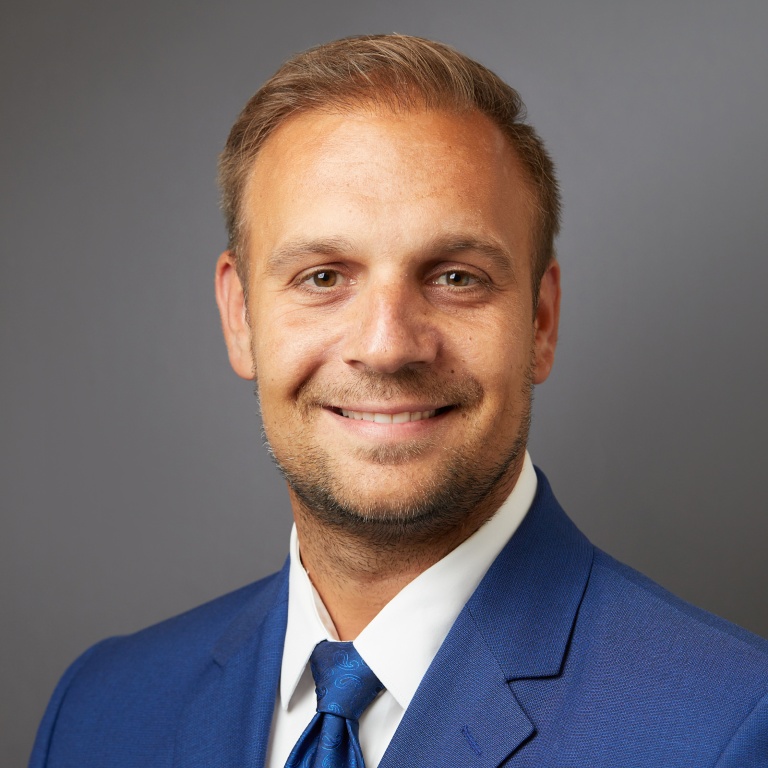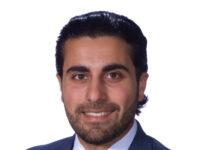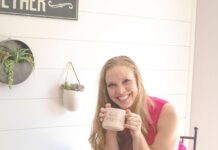Dr. Nicholas Tzikas is an Assistant Professor of Clinical Neurology at Yale School of Medicine. He chatted with Markos Papadatos about his latest endeavors.
The late U.S. Army general and former Secretary of State Colin Powell once said: “A dream doesn’t become reality through magic; it takes sweat, determination, and hard work.” Dr. Nicholas Tzikas is an individual that epitomizes this wise quotation.
“Medical education is a passion of mine,” he admitted. “I very much enjoy the teaching that comes along with the position and educating at various levels; medical students, residents and fellows. I am Co-Director of our Head & Facial Pain fellowship program and help train fellows and residents from various specialties including neurology, anesthesia and medicine. Being part of an academic hospital was always the trajectory I sought. Education, research, seeing some of the most challenging patient cases and working with some of the brightest minds in every specialty make for a very rewarding career.”
Inspiration to go into the field of medicine
On his inspiration to become a medical doctor, he said, “Becoming a doctor was a lifelong aspiration of mine. Accompanying my grandparents to their family doctor and seeing the respect and reverence they had for him and his staff, coupled with the impact the doctor had within our community, made a significant impression on me at a young age.”
The digital age
He opened up about being a physician in the digital age, now with technology, streaming, and social media being so prevalent. “These really are very exciting times to practice medicine,” he said. “Technology has grown exponentially and so has access to medical care and information. From electronic medical records that can be shared and read (legible doctors notes) by multiple providers across all disciplines and institutions, to medical devices/apps that monitor health from remotely and the integration of telemedicine allowing for consultations by healthcare providers to patients in distant or rural areas, just to name a few; however, this digital revolution in medicine is not without its ‘glitches’ (see doctors have a sense of humor too)- maintaining patient privacy/security and helping patients filter through the information overload online (which may be unverified or from unreliable sources), present their own set of challenges,” he elaborated.
On his use of technology in his daily routine as a health professional, he shared, “Technology is now integral to the practice of medicine. I use telemedicine and video platforms to provide care to patients for whom distance and access could otherwise be a barrier to healthcare. We also use the latest technologies for diagnosing and treating patients allowing for more precision in medicine.”
Proudest professional accomplishments
On his proudest professional achievements, he revealed, “Graduating medical school and completing residency and fellowship training were some of my proudest professional moments. I feel a great sense of pride in being a doctor. It is a tremendous honor that comes with great responsibility. Despite the pride in my profession, I am aware that the medical field is truly humbling, requiring lifelong learning and I strive to practice with kindness and humility. In my role, I have had the privilege of helping educate and train medical students, residents and fellows. When I see them excel and feel that they were inspired by our interaction or that I was able to impact them positively, those are truly my proudest moments.”
Career-defining moments
When asked about his career-defining moments, he said, “Among many such moments, it was a time and not a particular instance that stands out in particular. It was early on during the pandemic while I was driving to the hospital. Usually the commute was about 1.5 hours in traffic, but the roads were empty. On my way to work, I had a renewed sense of purpose and pride in my profession.”
“The true essence of practicing medicine was a sight to behold during those very difficult times. During some of the most harrowing times, emerged a sense of community, humanity and comradery between people and all professions,” he added.
Plans for the future
On his plans for the future, he responded, “I hope to continue to expand my practice and grow in my professional role at my current institution and within my community. I am also working on an educational medical book which is a passion project of mine and hope to finish it some time in the near future.”
Greek heritage
Regarding his Greek heritage, he shared, “My father is from Thessaloniki and my mother was born in the NY. Her parents were from Patra and Cyprus. I was born and raised in New York, and I grew up in Bayside, Queens.”
Thoughts on the Greek-American community in the U.S.
On the Greek-American community in the United States, he remarked, “It is a dynamic and thriving community that has had a profound impact spanning multiple domains including political, academic, culinary, arts, entertainment, medicine and journalism of course (shout out to you, Markos, and your incredible career). The Greek-American organizations have been vital to the success of young Greek-Americans and in helping us collaborate professionally and preserve our cultural identity.”
“I’m especially proud of our local New York Greek Orthodox Churches- St Demetrios in Jamaica, St Nicholas in Bayside, Archangel Michael in Port Washington, Holy Resurrection of Brookville and the Transfiguration of Christ Greek Orthodox Church in Mattituck. The priests, parish counsel and faculty at these churches and their schools have had a profound impact on my family and I will be forever grateful for their support and guidance while growing up and living in these communities. The impact and importance of their ongoing efforts geared towards mentoring our youth and keeping our Greek heritage alive through various programs, events and festivals cannot be overstated,” he elaborated.
Success
On his definition of the word success, Tzikas said, “To me, success is rooted in having meaningful relationships both personally and professionally and to have made a positive impact on my community and beyond. This question brings me back full circle to a quote by Ralph Waldo Emerson which was perched outside our school’s library- ‘To know even one life has breathed easier because you have lived, this is to have succeed.’ Despite not being a pulmonologist, I continue to hold on to this idea as a measure of my success.”
To learn more about Dr. Nicholas Tzikas, check out the Yale School of Medicine website.









